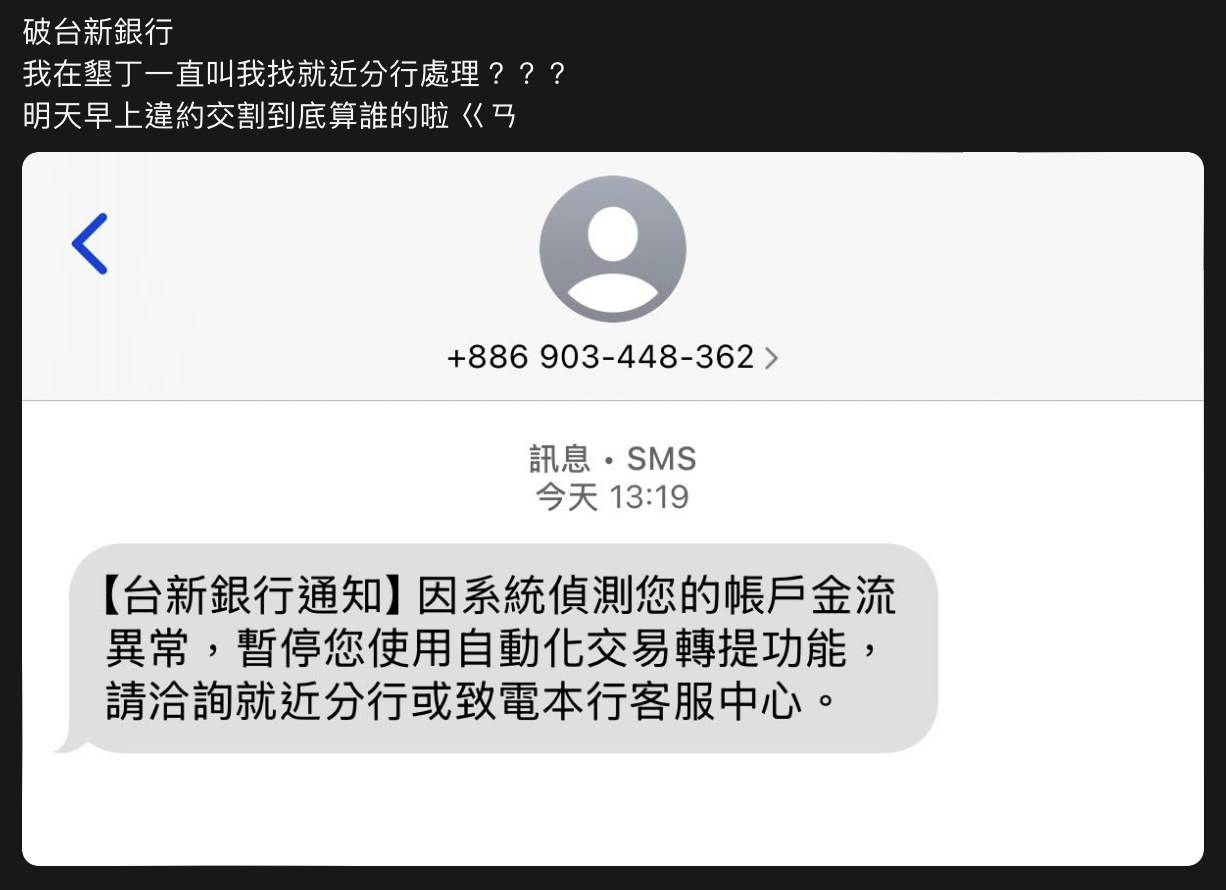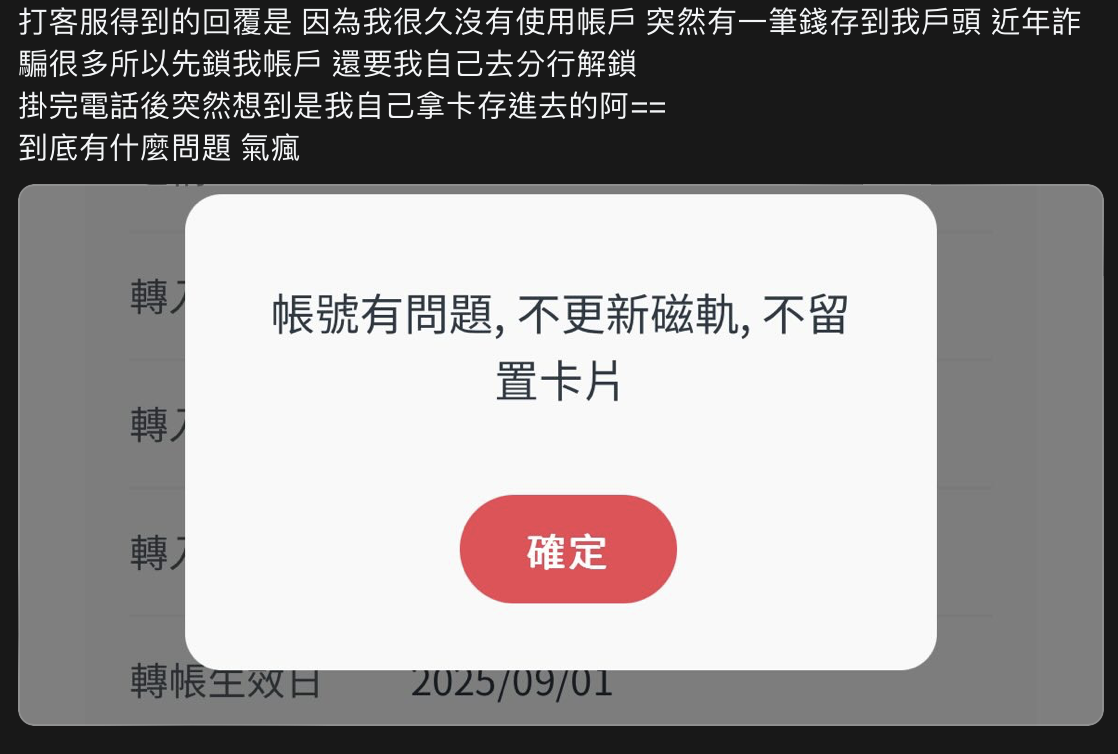Fight fraud with no mercy! The government's recent crackdown on fraud has intensified, and domestic banks have also followed the Financial Supervisory Commission's guidance to strengthen account risk management. However, in the past two days, there have been a steady stream of complaints online about inexplicably locked accounts. One netizen lamented that her securities settlement account at Taishin was suddenly frozen, and customer service instructed her to visit the nearest branch to unlock the account, leaving her devastated.


This netizen posted a complaint on Threads, saying she works in Kenting and it takes two hours to drive to the nearest branch to unlock her account. If the account can't be unlocked by tomorrow morning, she fears it will result in a default. Since the bank was closed, she called customer service several times before the branch agreed to assist her with unlocking the account online.
More netizens have had their accounts frozen
The netizen also discovered today that his settlement account was frozen and he did not receive any notification because "the account has not been used for too long", which made him very angry.

Another netizen also had his account frozen because he had not used his account for a long time and his ATM card was deemed to have been used abnormally for deposits. He had to go to a branch to unlock his account.

Yesterday, a Taishin user had his account locked. After he insisted on "sending the ashes of the deceased to the branch to chant the mantra for the deceased", the customer service agreed to unlock his account online.

After many netizens inquired, Taishin customer service explained that AI is now used to judge risks and automatically freeze accounts. The bank is helpless in its anti-fraud efforts and asks customers to understand.
Banks’ risk control standards have been tightened, and crypto traders should also take note.
In recent years, the number of fraud cases and the amount of money lost in Taiwan has reached new highs. Many banks have also begun to introduce new regulations to prevent fraud since September. The most obvious of these is "long-inactive accounts", that is, accounts that have not been activated for too long and money has not been flowing in or out of the accounts (including accounts that have not been logged into the Internet function for too long). It is easy for the bank to freeze the automated transaction function, which means that the online banking function cannot be used and needs to be unlocked at a bank branch.
However, since each bank has different risk control standards and will not disclose detailed information, most banks currently rely on program judgment. Many people's accounts are locked because they are automatically frozen under the judgment of the system. The main reasons for freezing include:
- Account not used for a long time/online banking login
- Long-term non-remittance/deposit
- Large remittances and large deposits that have not been used for a long time
- Too frequent logins/transfers/deposits (common among high-frequency traders)
- Having financial transactions with the warning households
Recently, many rumors have pointed out that those who have large transactions with cryptocurrency exchanges are also a group that is subject to special scrutiny in fraud prevention . If possible, they should use domestic banking services, try to use bank counters as much as possible, and keep complete records of their investment transactions.








